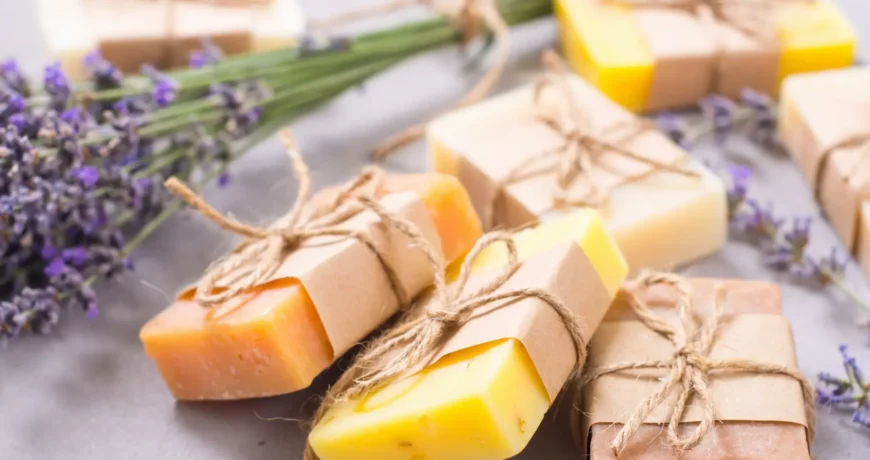Crafting and Selling Artisan Soaps: A Guide to Success in the Bath and Skincare Market Leave a comment
Introduction:
The market for artisan soaps is thriving, as consumers increasingly seek unique and luxurious bathing experiences. If you’re considering entering the world of crafting and selling artisan soaps, this blog post is here to guide you. From the production process to marketing strategies, we’ll explore the essential elements necessary for success in the bath and skincare industry.
Mastering Soap making Techniques:
Before diving into selling artisan soaps, it’s crucial to develop a strong foundation in soap making techniques. Familiarize yourself with the various methods such as cold process, hot process, and melt-and-pour, understanding the benefits and challenges of each. Experiment with different ingredients, fragrance oils, and colours to create your signature soap recipes that offer both exceptional quality and aesthetic appeal.
Sourcing High-Quality Ingredients:
To stand out in the market, prioritize sourcing high-quality ingredients for your artisan soaps. Seek out reputable suppliers that offer natural oils, butters, botanical extracts, and essential oils. Opt for ingredients that are skin-friendly, sustainable, and preferably organic. Carefully selecting your ingredients will ensure that your soaps deliver the best possible skincare benefits and a luxurious bathing experience.
Developing Unique Product Offerings:
In a competitive market, differentiation is key. Experiment with different scent combinations, colours, and textures to create a diverse range of artisan soaps. Consider incorporating special additives like exfoliants, clays, or dried botanicals to enhance the sensory appeal of your products. Offering a variety of soap types, such as moisturizing bars, exfoliating scrubs, or speciality soaps for specific skin concerns, can attract a broader customer base.
Branding and Packaging:
Crafting a strong brand identity and designing attractive packaging are crucial for catching the attention of potential customers. Create a unique brand name and logo that reflects the essence of your soaps. Invest in high-quality packaging materials that align with your brand image and emphasize eco-friendliness. Consider adding informative labels that highlight the key ingredients and skincare benefits of each soap, appealing to conscious consumers who prioritize transparency.
Marketing and Distribution Channels:
Effectively marketing your artisan soaps is essential to reach your target audience. Establish an online presence through a dedicated website or e-commerce platform where customers can explore and purchase your products. Leverage social media platforms to showcase your soaps, engage with your audience, and share skincare tips. Collaborate with influencers or beauty bloggers to expand your reach. Additionally, consider participating in local craft fairs, farmers’ markets, or partnering with local boutiques to gain exposure and build relationships with customers.
Providing Exceptional Customer Service:
Exceptional customer service is key to building a loyal customer base. Ensure prompt and personalized communication with your customers, addressing any inquiries or concerns. Offer incentives like loyalty programs, discounts, or samples to encourage repeat purchases. Request and value customer feedback to continuously improve your products and services.
Conclusion:
Crafting and selling artisan soaps can be a rewarding and profitable venture in the bath and skincare market. By focusing on quality ingredients, unique product offerings, branding, effective marketing strategies, and excellent customer service, you can establish your brand and stand out from the competition. Embrace the creative process, stay connected with your customers, and enjoy the journey of providing luxurious and indulgent bathing experiences through your artisan soaps.


